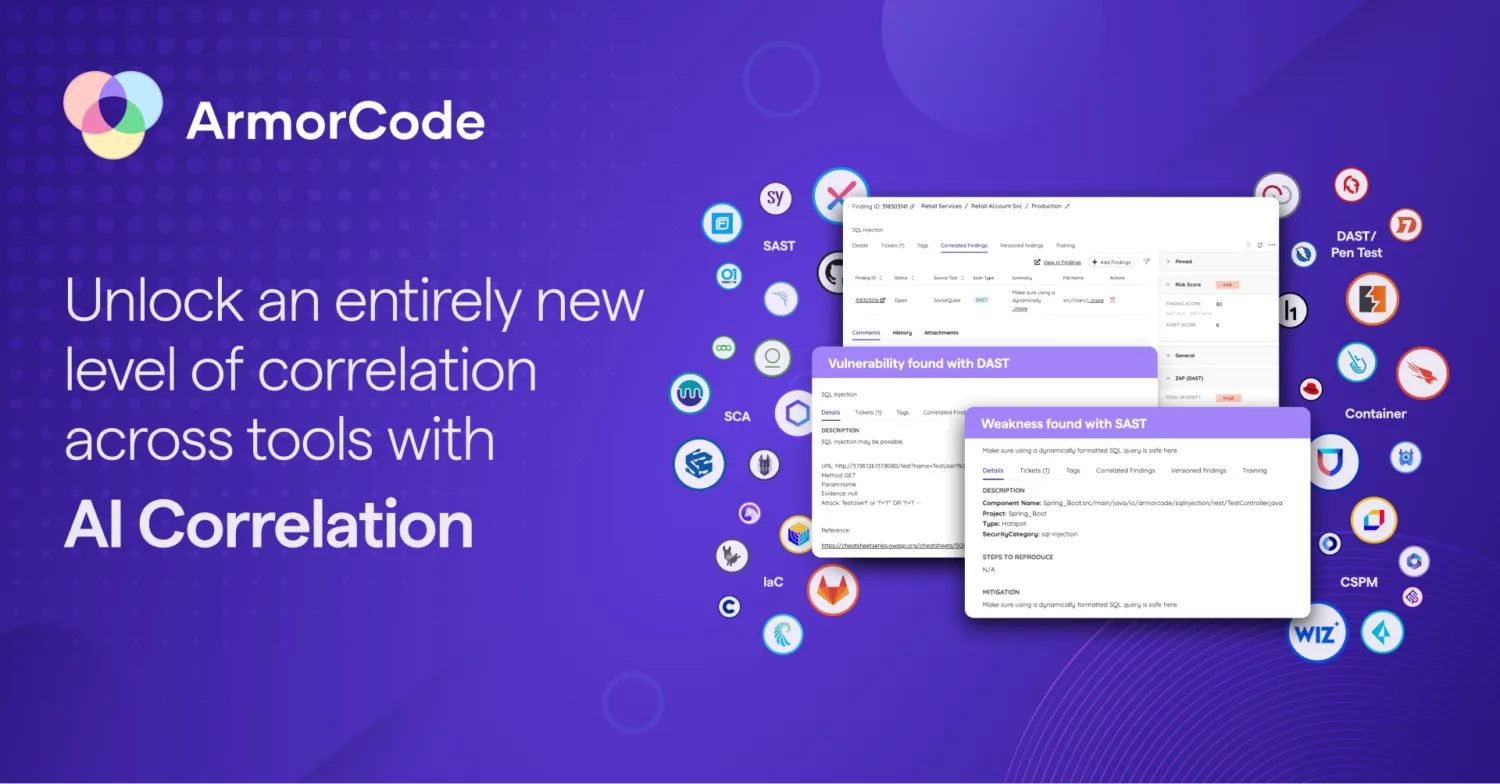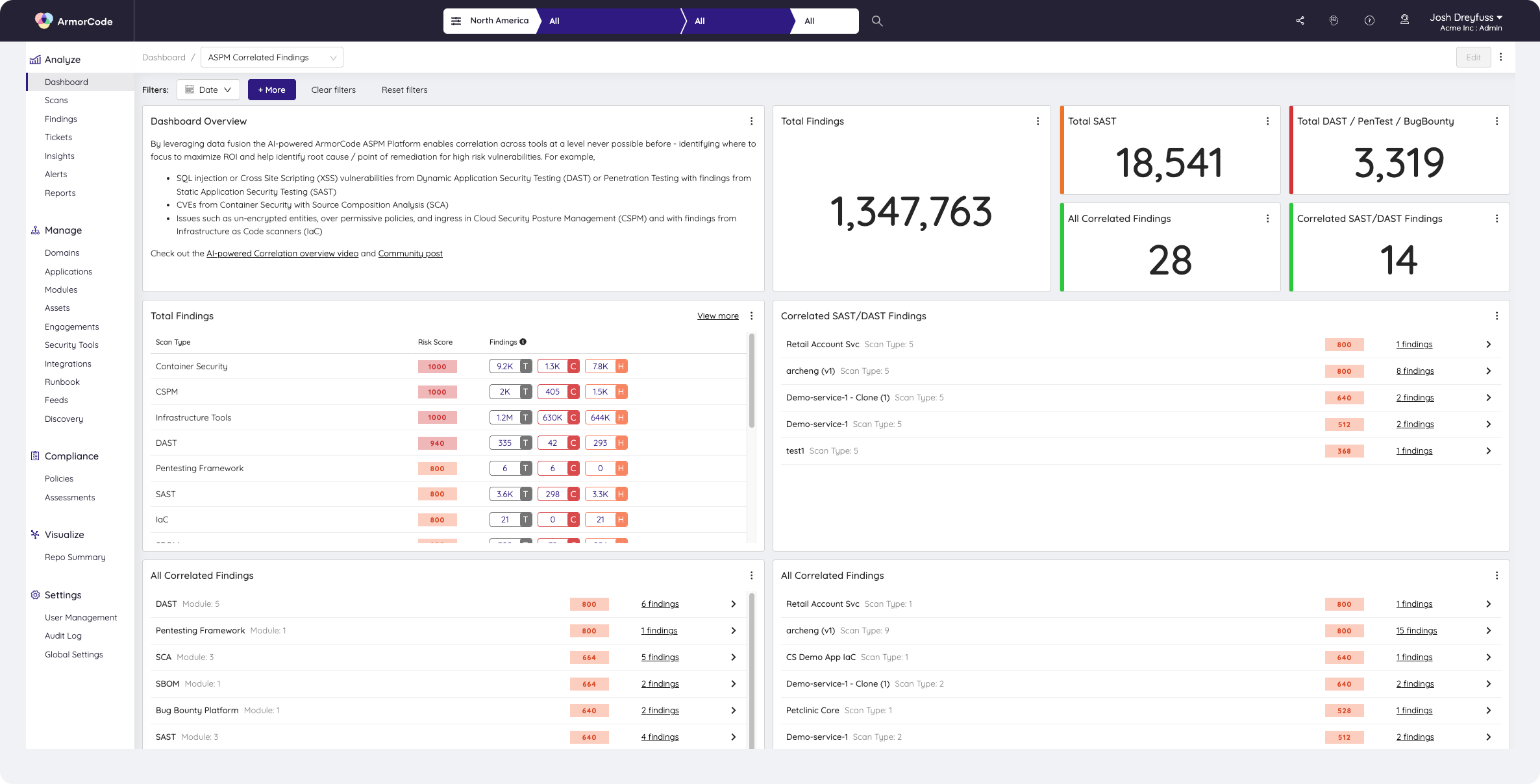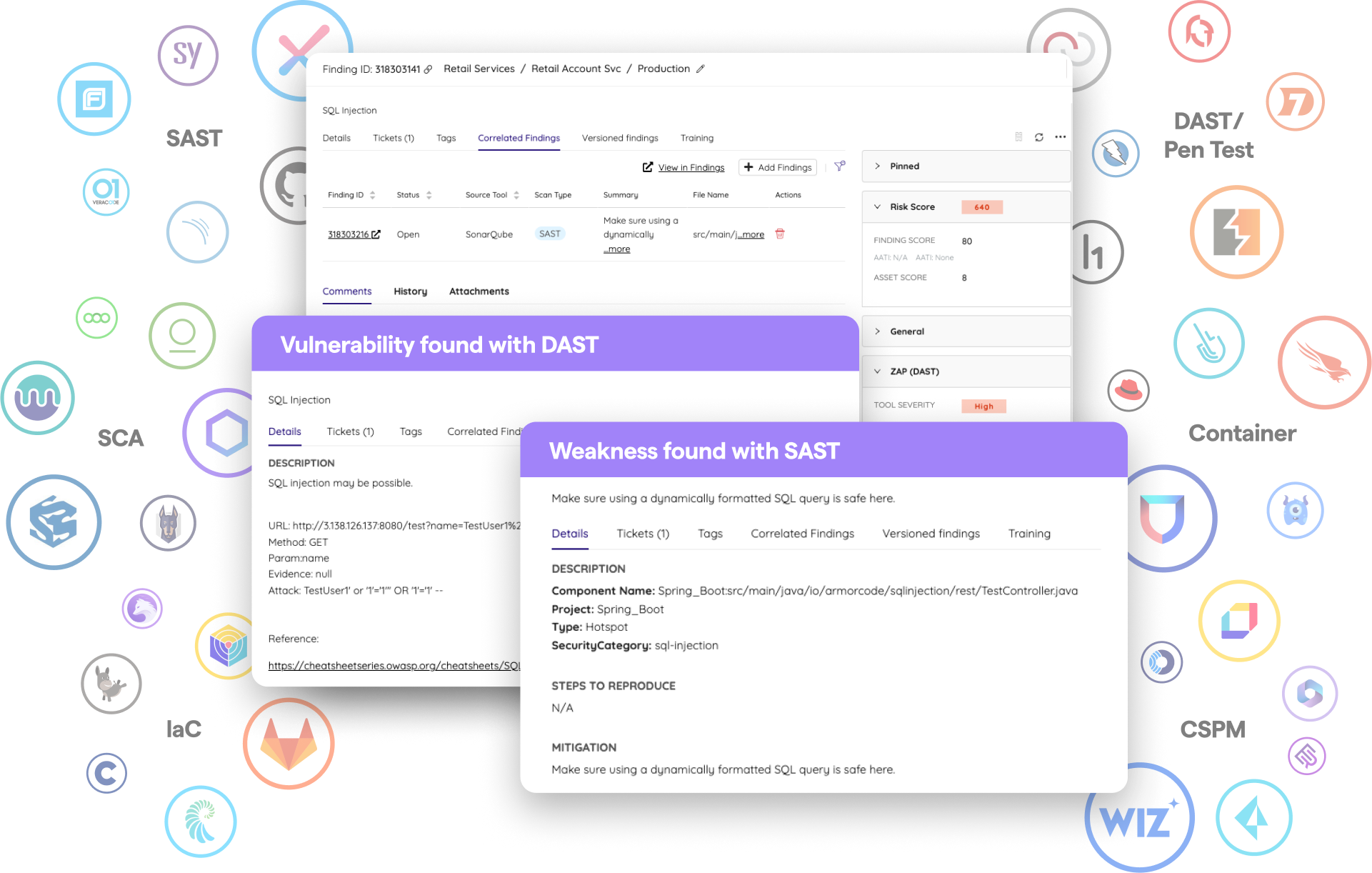Unlock an entirely new level of correlation across tools with AI Correlation

Modern security programs require specialized scanning tools, each of which generates a huge volume of individual vulnerabilities and weakness-related findings. While these scanners are necessary to cover modern application development, they introduce silos and complexity. Security teams struggle to get a centralized view across their tools for a true understanding of their risk and the amount of work needed to bring their organization into compliance.
Security teams want to send developers the context and information they need to solve security problems and reduce security debt and risk. However, they face too much data, noise, and complexity today to make this happen effectively.
ASPM is an approach to bring unified governance and risk reduction across all of a security team’s scanners so teams can reduce complexity and burn down their security tech debt. With the advent of AI in organizations, the need for ASPM is even more urgent as the speed of delivery increases and new risk factors are introduced. Fortunately, AI has the potential to supercharge ASPMs, helping security teams better correlate, prioritize, and remediate findings.
Introducing AI Correlation: leveraging data fusion to deliver a never-before-seen level of correlation
As part of its AI-powered ASPM Platform, ArmorCode is introducing a major AI pillar today: AI Correlation.
Correlating findings between scanning tools is something the industry has been trying to do in one form or another for decades with mixed success. Correlating along a single attribute has limited effectiveness, and doesn’t work well for weaknesses. With the introduction of AI Correlation, ArmorCode is bringing true data fusion to correlation, leveraging AI to correlate among multiple attributes and bringing Findings together in ways that were previously not possible.
Scanning tools generate thousands of alerts, and focusing on the right issues to fix isn’t easy. Even for alerts you want to remediate, finding the root cause of a vulnerability is hard. If an issue is discovered on the right (i.e. production/runtime), it’s more likely to be an accurate finding, but it’s further removed from the code, making it harder to find where the problem originated. On the other hand, the further to the left (i.e. code/development) you can find the problem, the easier it is to fix. However, the further left you go, the noisier everything is. AI Correlation is built to solve this problem by bringing the two together.
For tools on the left like SAST or IaC, ArmorCode provides a strong signal that they’ve identified a real issue through correlation with tools on the right. For tools on the right like DAST or CSPM, ArmorCode shows security teams the root cause of issues through correlation with tools on the left, helping them identify the source code and development owner much faster.
Thanks to its ability to deliver data fusion across scanning types, AI Correlation enables security teams to see and fix the highest signal Findings in their environment.
Identify high-signal Findings and focus on what matters
Maximize ROI by quickly identifying which Findings will burn down the most critical security technical debt. AI Correlation leverages machine learning and natural language processing to highlight when a specific vulnerability or weakness has been found by multiple security scanners in your environment, even across different types of scanners. If a SAST finding is correlated with a DAST finding, for example, it’s much less likely to be a false positive, giving security teams a clear indication of where to focus their remediation efforts.
By bringing data fusion across scanning types, AI Correlation gives a clearer picture of the work needed to be done. This allows for more streamlined, actionable reporting and faster triaging.

Reduce MTTR to get the job done quicker
By fusing data across scanning types, AI Correlation helps security teams get to the root cause of issues and see which developers own the impacted source code. This allows security teams to send developers fewer, more impactful tickets, with much greater detail on what code or asset needs patching. As a result, security teams are triaging issues faster, and developer teams are more willing to engage with security issues and able to act on them much quicker.

Cut out waste and optimize your toolchain
AI Correlation helps security teams reduce wasted time spent sifting through scan results by hand to correlate findings. By offering a clearer sense of the work to be done to burn down security tech debt, security teams can operate more efficiently. With a broader sense of tooling coverage, security teams also maximize the effectiveness and efficiency of their scanners.
Data fusion drives a new level of correlation across scanners
The ArmorCode AI-powered ASPM is leveraging data fusion to deliver a level of correlation that’s never been seen before. With its unique dataset, driven by an unmatched volume of data from a wide variety of sources, validated by thousands of security professionals, ArmorCode is unlocking new ways for AI to empower security teams to correlate, prioritize, and remediate security findings faster and better than ever before.
AI Correlation is a major element of the AI-powered ASPM, bringing the ability to correlate Findings across different scanning types through multiple different attributes so security teams can separate the signal from the noise, focus on what has the highest impact, and remediate Findings faster.
Schedule a personalized demo to learn more about ArmorCode and AI Correlation. You can also check out this video overview of AI Correlation to see it in action:



